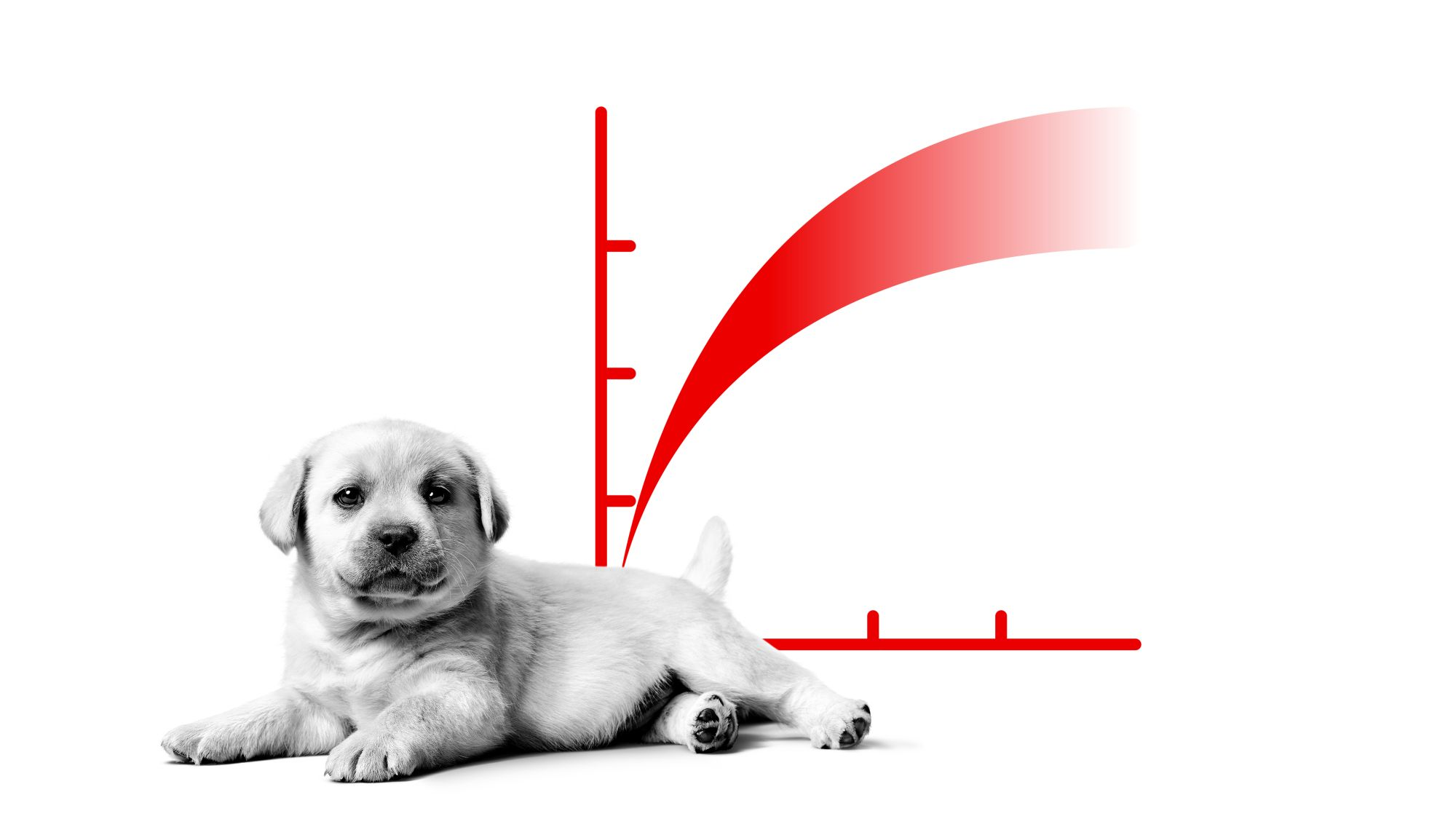
Healthy growth lasts a lifetime
Losing weight is more difficult than preventing weight gain in the first place, so it's important that healthy habits and behaviours are set from day one.
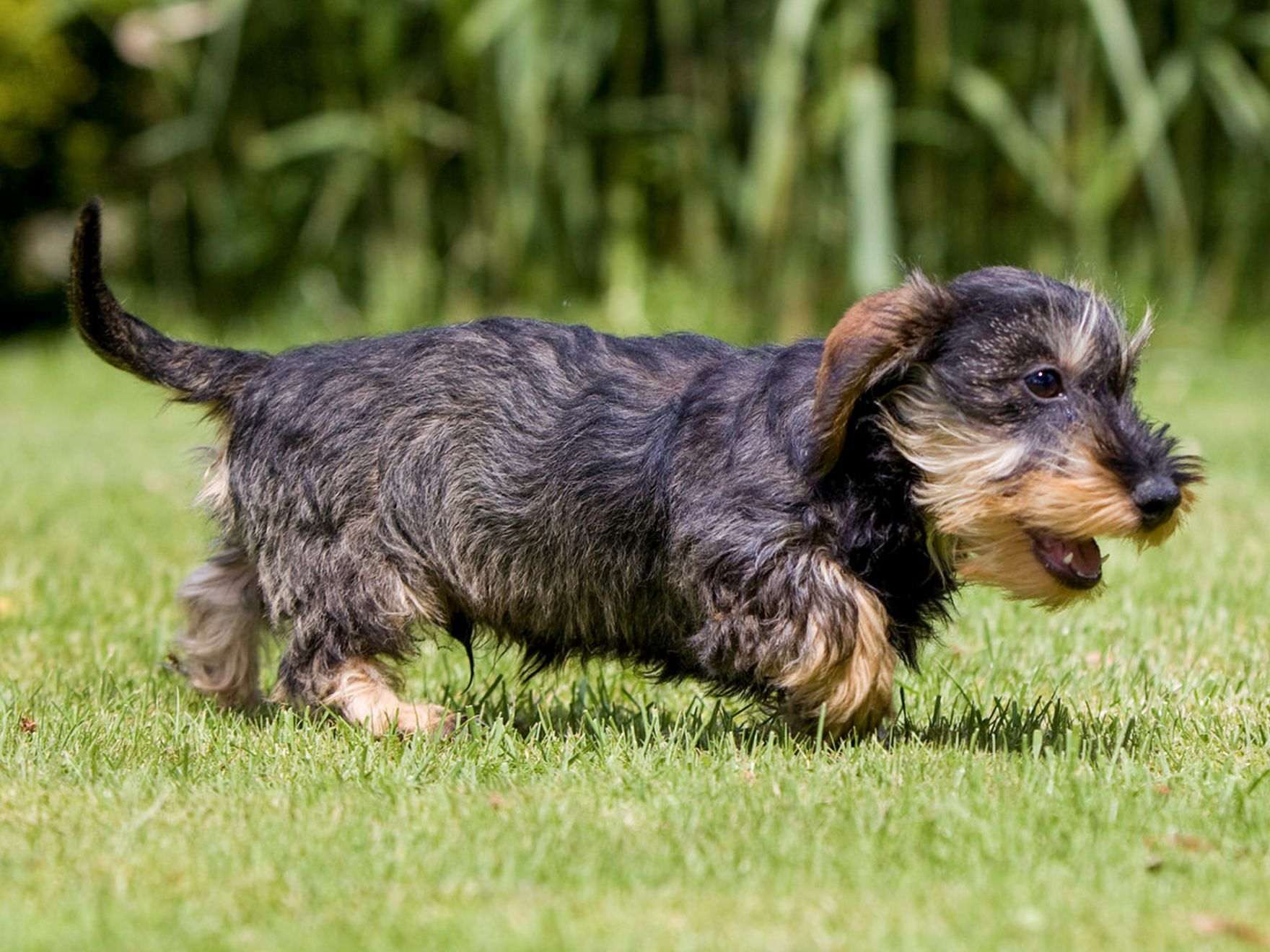
How much exercise does a puppy need every day?
When it comes to giving guidance on how much exercise a puppy needs, it is very difficult to give a precise answer. The simple truth is that the amount of exercise a puppy should have, depends on each individual puppy.
As a start point however, consider your dog’s size and breed type. Smaller dogs tend to mature to adulthood at between 6 and 12 months old and therefore are able to tolerate increased levels of exercise at an earlier age. Exercise for puppies who will grow into larger dogs needs to be carefully monitored for a longer period of time – they may grow quickly but they mature slowly. They won’t achieve adulthood until they are between 18 and 24 months.
Always take care to look for signs of tiredness or even exhaustion in any puppies. They may start to feel uncomfortable or ache with too much exertion, which can take the fun out of their play. If you spot your puppy beginning to tire, stop for today and do a little less tomorrow. They’ll soon catch up.
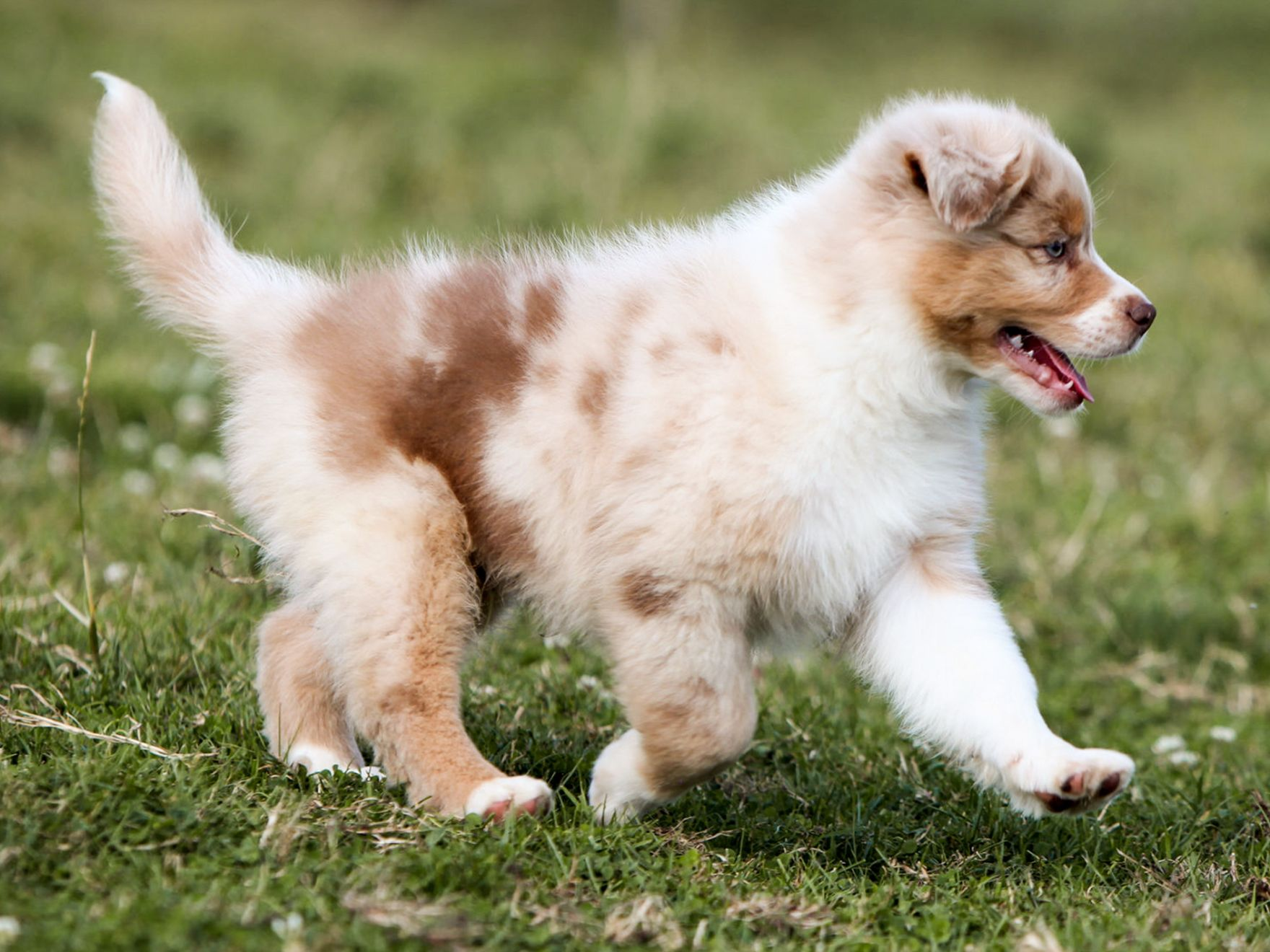
A puppy’s different needs at each stage
Puppies of all breeds change rapidly as they grow up. When you're raising a puppy week-by-week, it can be helpful to be aware of how their needs change. Understanding the different stages of their development can help you prepare and feel confident that you're giving your puppy the best start possible.
The developmental changes your puppy will experience from birth can have a significant impact on their need for the right nutrition and exercise. During puppyhood, lots of things will happen. Your pet’s adult teeth will appear, its adult fur will come through, and its skeleton and organs will grow.
This is also the time to consider sterilising your puppy. Speak to your vet about the right moment for your puppy based on their size and breed. While there are several health benefits to sterilisation, it does increase the risk of obesity. Most dogs tend to put on weight after the process since it provokes a drop in energy needs and increases appetite. To prevent excess weight gain, it is important to ask your vet to recommend a special diet for sterilised dogs intended to limit the number of calories consumed. Monitor the change in your puppy’s body shape and weight by weighing them every 2-3 weeks for a period of 3 months after the operation so that you can ensure they maintain their ideal weight.
As all these changes take place, it’s vital that your puppy gets all the nutrition they need – and that care is taken not to overfeed, which could cause unnecessary weight gain.
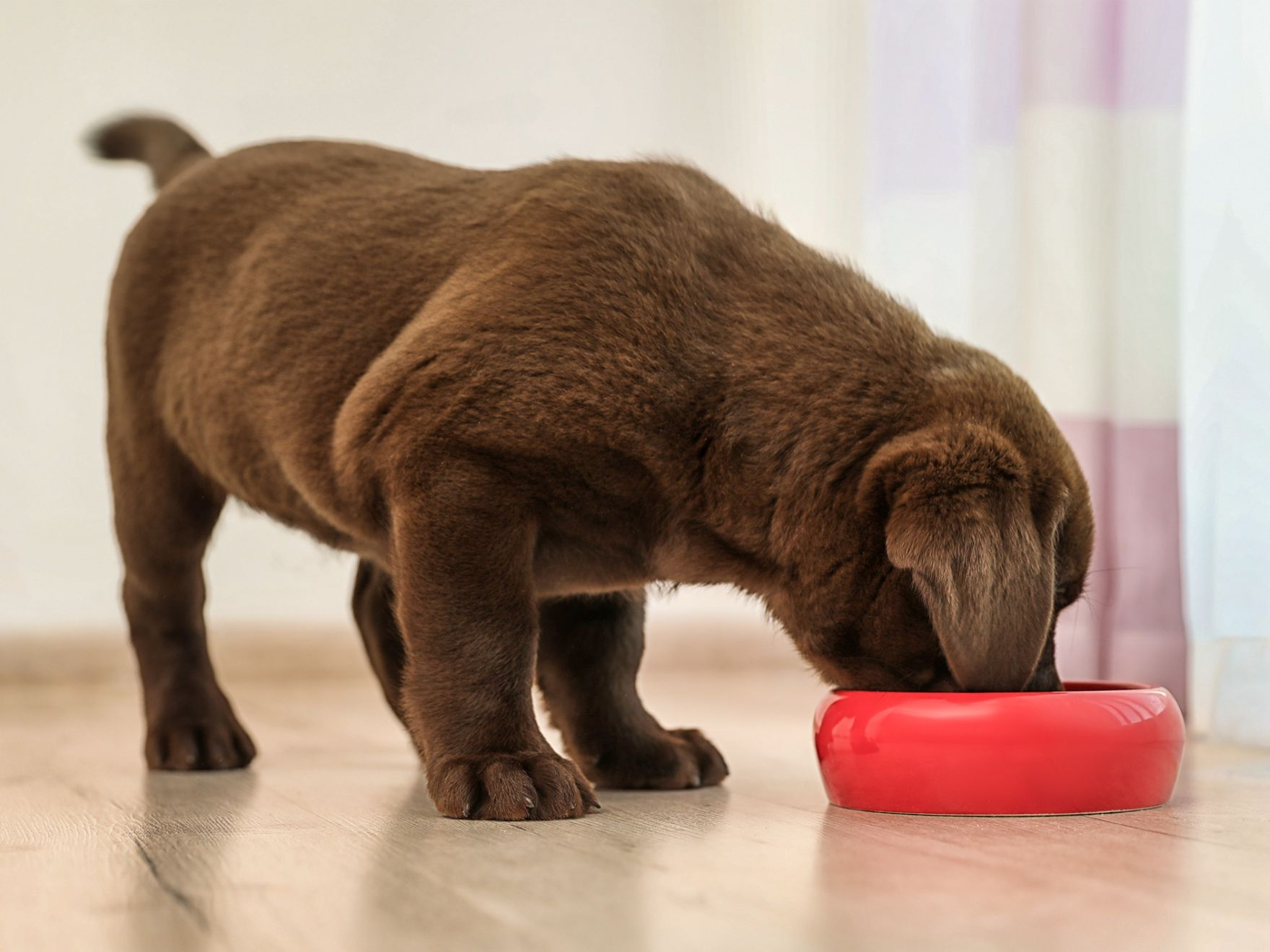
A healthy weight starts with healthy habits
One of the best ways to ensure that your puppy grows into a happy and healthy dog is to instil appropriate feeding and exercise habits from the beginning. Whatever your puppy’s breed, age and activity levels, you can help them to maintain a healthy shape in a number of simple ways.
When it comes to feeding your puppy, take care to provide puppy food in the correct portion size as your pet reaches each different developmental stage. Say no to any begging behaviour in your puppy to keep their food intake in check. Finally, including any treats in your pet’s daily portion of food will help to maintain a healthy weight and shape as they grow. Remember, treats should only account for up to 10% of your puppy's daily portions.
Checking in regularly with your vet will help you meet your puppy's needs at each developmental milestone as it grows up.
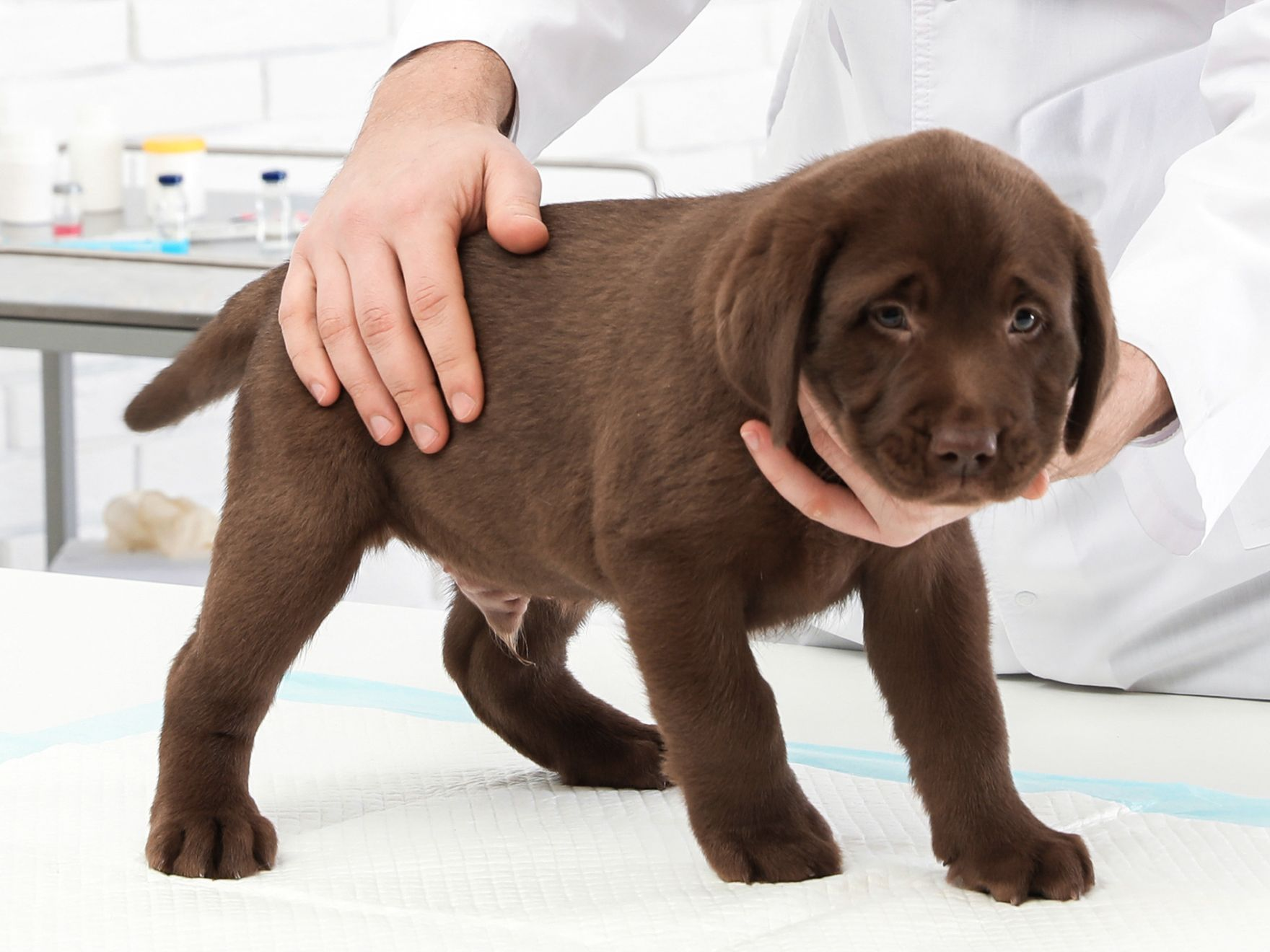
Speak to your vet for help on each growth stage
As your puppy develops and grows into an adult dog, it’s important to make sure that you’re aware of their changing needs at each developmental stage. Speaking to your vet and asking any questions you have will help you to feel comfortable that you’re meeting your pet’s needs as they grow.
Veterinary advice and support are especially important when it comes to making any changes to your pet’s diet, or if you suspect that something may be affecting your puppy’s health.
Your vet can help you with setting appropriate, healthy dietary and exercise habits for your pet from the start.
Calling on a professional opinion will put your mind at ease from the start and help you help your puppy to grow into a happy and healthy dog.
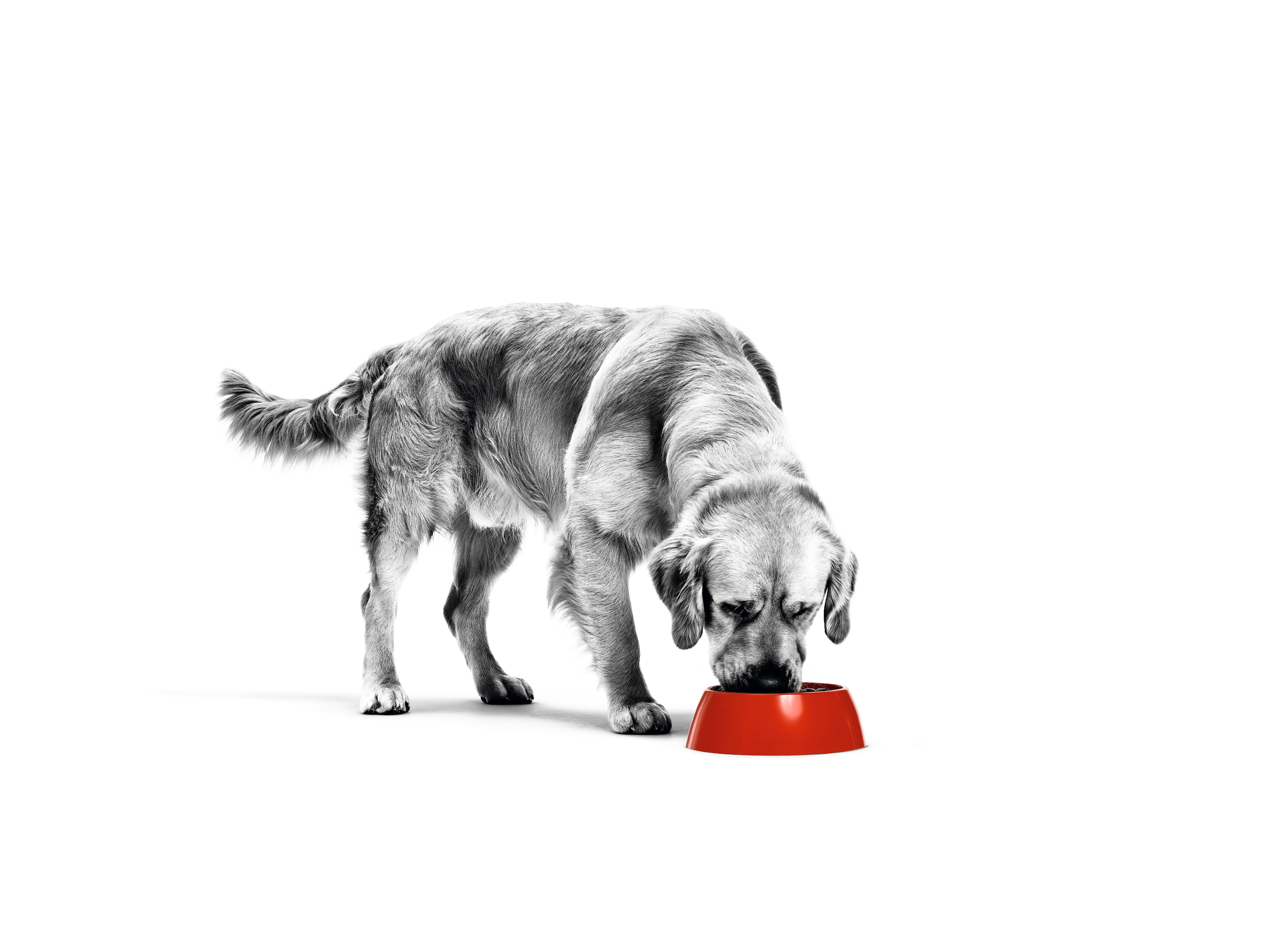
Healthy portions are smaller than you think
Many pet owners think their dog needs more food than it really does. This means that many dogs are overfed which can cause weight gain and lead to other health issues.
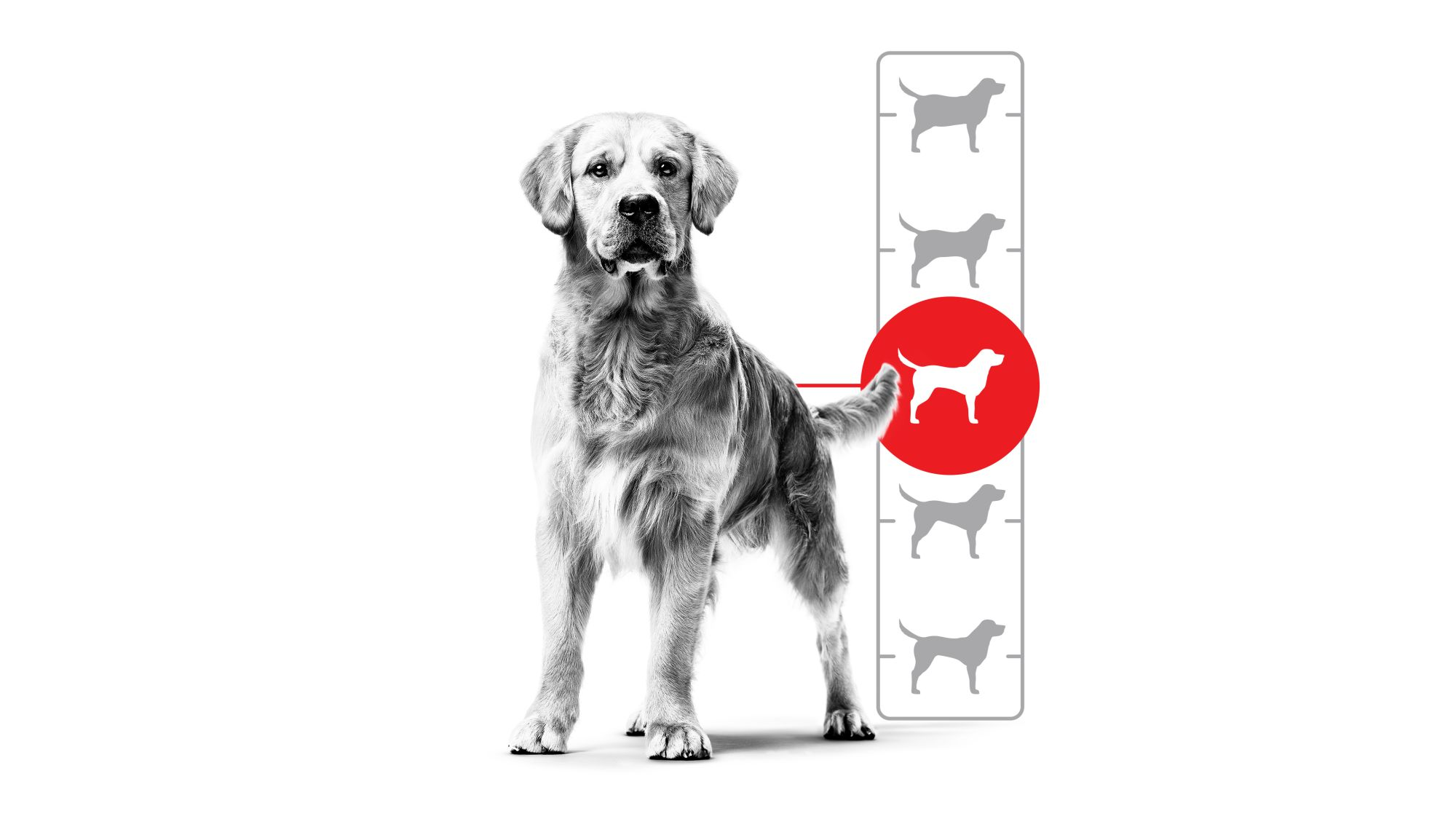
Healthy weight isn't only measured on a scale
Weighing your dog is not the only way to check if they're overweight. You can find out if your dog is a healthy weight by asking your vet how to use the Body Conditioning Score.